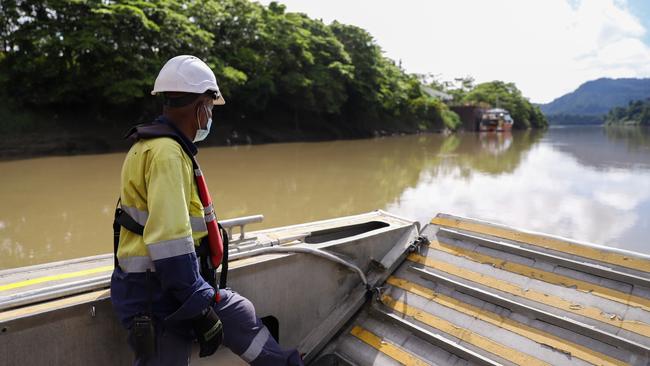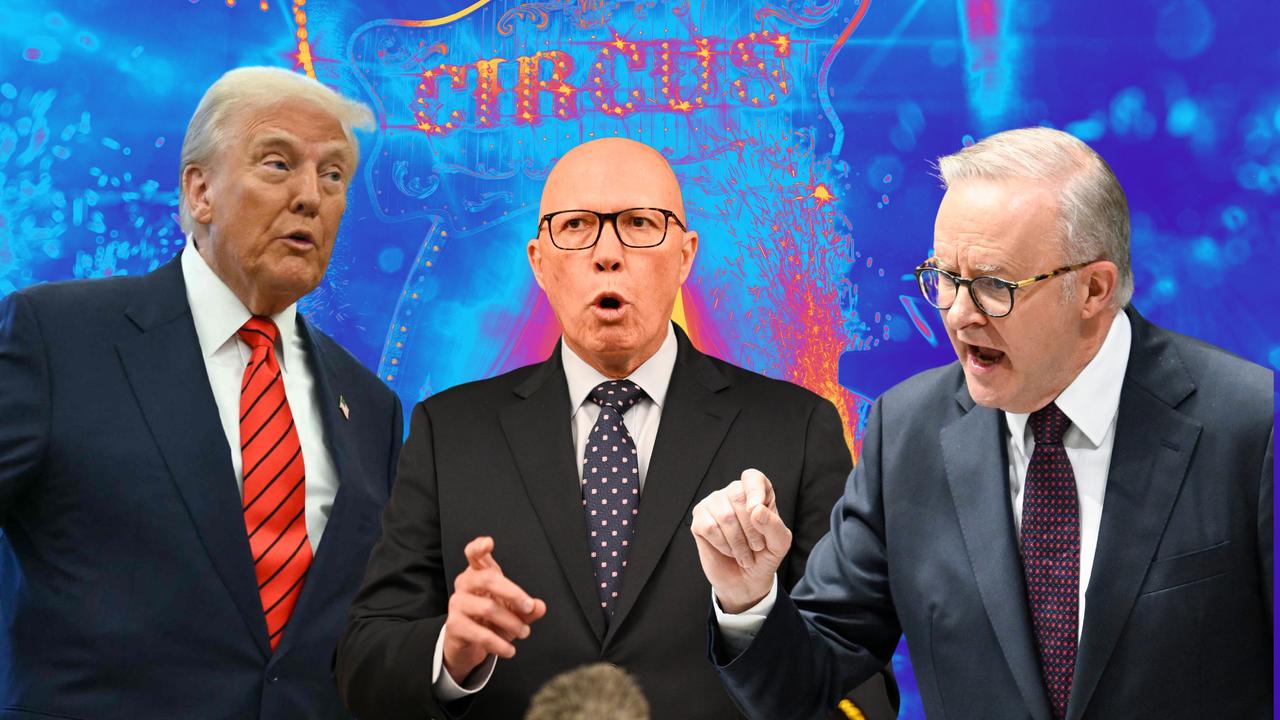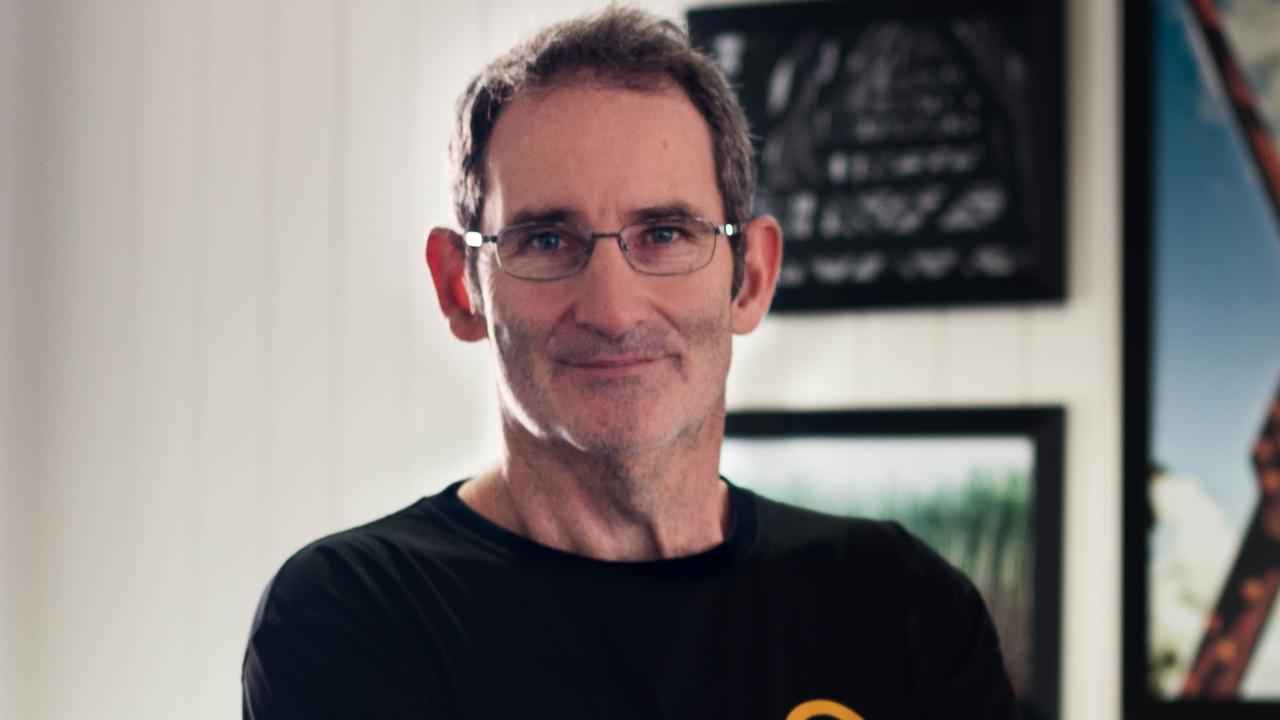Santos drawn into legal stoush between Swiss financier Carlo Civelli and Texan Philippe Mulacek
Santos has been hit with legal action over spoils from the sale of a stake in a $US10bn gas project that caused political chaos in PNG and led to a damning royal commission.

Adelaide-based gas major Santos has been hit with an application for a freezing order over spoils from the sale of a stake in a $US10bn gas project that caused political chaos in Papua New Guinea and led to a damning royal commission.
The legal action complicates Santos’ minority stake in the $US10bn ($14.9bn) Papua LNG project, and threatens to drag the company into a sprawling $US450m dispute between two colourful stock promoters that backed the discovery of PNG’s Elk and Antelope gas fields, tipped as the biggest undeveloped liquefied natural gas project in the impoverished nation.
Asian Gas Partners, a company registered in tax haven the British Virgin Islands, has asked the Federal Court for an order freezing additional payments that are supposed to be made to some of the parties involved in the sale of the gas field stake in 2014.
The application draws Santos into a long-running legal stoush between the vendors, Swiss financial adviser Carlo Civelli and Texan oil and gas explorer Philippe Mulacek, whose falling out over the spoils of their windfall has already led to years of litigation in the US and Singapore where as much as $US450m ($670m) tangled up in their lengthy business relationship is in dispute.
An originating application filed in the Federal Court by Asian Gas Partners does not specify how much money is at stake, but documents show that the deal required additional money to be paid if gas reserves in a field known as Elk-Antelope were higher than estimated.
Asian Gas Partners has asked the court to freeze “additional cash payments” that would otherwise flow to Mr Civelli and companies associated with him.
The BVI company is also seeking a federal court order that Santos must not “dispose of, deal with or diminish” the rights, title and interest held by any of the original parties to the sale of the stake in the gas fields.
It is not clear whether any money is actually due, as Santos last assessed the size of the fields in 2016 as smaller than would be required to trigger additional payments, according to disclosures to the ASX.
Santos and its partners in the field have not indicated that an update of the field’s size is due in the near future.
The Federal Court refused to provide affidavits that might have shed more light on the dispute.
Santos declined to comment on the legal action as it was still before the courts.
Tangled dealings lead to UBS loan scandal
Companies associated with Mr Civelli and Mr Mucalek sold a 22.85 per cent stake in the Elk-Antelope gas field to Oil Search in 2014.
Oil Search was taken over by Santos in 2021, and in March 2023 the field’s owners – including Santos, French energy giant Total and US behemoth ExxonMobile – pulled the trigger on the final round of engineering and design on a $US10bn development of the field, with the partners hoping to make a final investment decision by the end of 2023 and begin construction of the 6 million tonne a year LNG project early in 2024.
But Oil Search’s acquisition of its stake in the fields led directly to a political crisis in PNG, ultimately costing its poverty stricken government more than $340m and sparking a royal commission that savaged almost all parties to the deal and recommended banking giant UBS and Australian law firm Norton Rose be banned from doing business with the PNG government and state-owned enterprises.
Mr Civelli and Mr Mucalek formed their PNG partnership in 2002, according to court documents. Mr Mulacek provided the knowledge of PNG’s oil wealth and Mr Civelli was the banker. Together the two men founded Interoil, which discovered and eventually sold the major Elk-Antelope gas project in PNG to a consortium of oil and gas majors, including France’s Total, US energy giant Exxon and Oil Search.
However, since 2017 the pair have been at war in the US and Singaporean courts, with each accusing the other of defrauding them.
Interoil discovered the field in 2009, but within a few years was at odds with the PNG government over the slow pace of further work on its development. That dispute eventually attracted the interest of Total, Exxon and Oil Search as potential buyers of the exploration licence, PRL 15, which includes the Elk and Antelope gas fields.
In mid-2012, after PNG resources minister William Duma threatened to strip Interoil of the right to develop the gas field, the company put its discovery on the market, sparking a three way bidding war for entry into the project.
Bidding kicked off in earnest later that year, with Total and Oil Search making a joint approach to Interoil to buy the project.
In May 2013, according to evidence presented to the PNG royal commision, Total and Oil Search made a joint bid to acquire either 85 per cent, or 100 per cent, of the project – later that month Interoil entered exclusive negotiations with Exxon over a deal for the entire project, with the US oil and gas giant valuing the discovery at about $US4.4bn.
Those negotiations also broke down and in late 2013 Total agreed to buy a 61.3 per cent stake in the fields for $US825m, plus additional payments depending on the eventual size of the discovery.
It is not entirely clear why the more valuable Exxon deal did not go ahead.
But, seemingly unbeknown to most of the parties involved, in March 2013 – after the bidding war for the project had already kicked off – Interoil transferred a 22.85 per cent stake in PRL15 to a group of companies ultimately controlled by Mr Civelli and Mr Mulacek, known collectively as PAC LNG.
It is not clear from Interoil disclosures, or from evidence presented to the PNG Royal Commission why this transfer was made, or what price was paid by PAC LNG and its backers.
But the transfer allowed Oil Search back into the race even after it was cut out of the Total deal, with Mr Civelli approaching Oil Search management directly to negotiate a price for PAC LNG’s 22.85 per cent stake.
Oil Search eventually agreed to pay $US900m for the stake, plus future payments depending on the eventual size of the project.
Companies associated with the two men took away about $US768.5m, or around 85 per cent of the deal’s total. Minority investors in PAC LNG were paid the rest.
That deal also puts the two men at the heart of the February 2014 scandal in which UBS provided PNG with a loan which the state used to buy $US900m worth of shares in ASX-listed Oil Search – effectively paying for the company‘s entry into the field.
But a plunge in Oil Search shares triggered an effective margin call for PNG, inflicting hundreds of millions in losses on the state, eventually triggering the fall of the government of Prime Minister Peter O’Neill.
The commission heard that in negotiations with Oil Search Mr Civelli claimed the transaction had the support of Mr O’Neill and the PNG government.
Mr O’Neill denied approving the deal or discussing it with Mr Civelli. However, the inquiry also heard evidence Mr O’Neill met with Mr Civelli and Mr Mulacek twice.
In its final report, released last year, the PNG royal commission found Mr O’Neill was “centrally responsible” for the UBS loan, which “had no satisfactory justification or rationale”.
“It made no economic sense for the State to pay large sums to multiple advisers as well as high interest payments on a loan to purchase shares in a publicly listed company,” the commission said.
US lawyers for Mr Civelli and Mr Mucalek and Asian Gas Partners’ Australian lawyers, Aptum Legal, did not respond to requests for comment.
Originally published as Santos drawn into legal stoush between Swiss financier Carlo Civelli and Texan Philippe Mulacek


